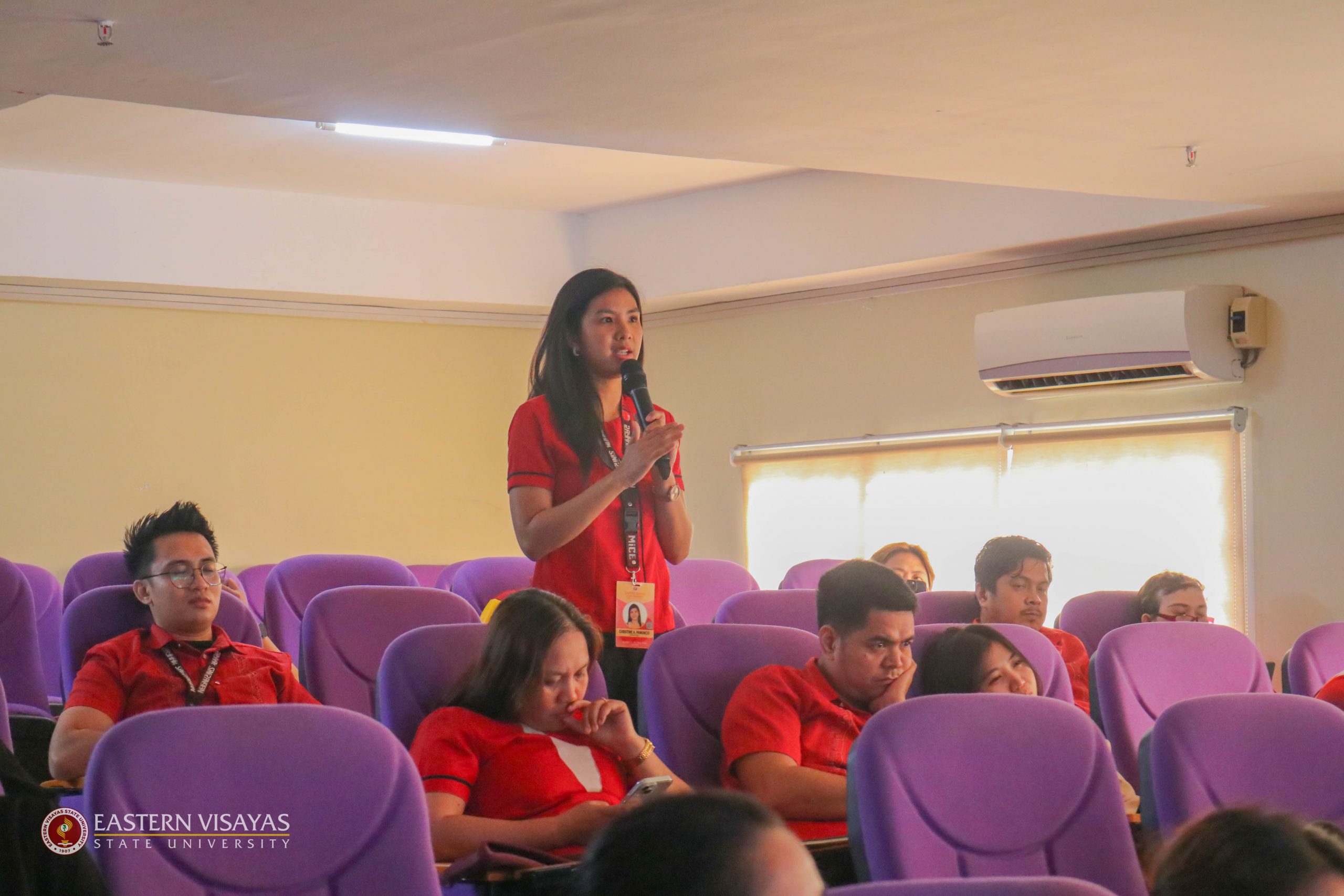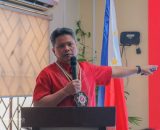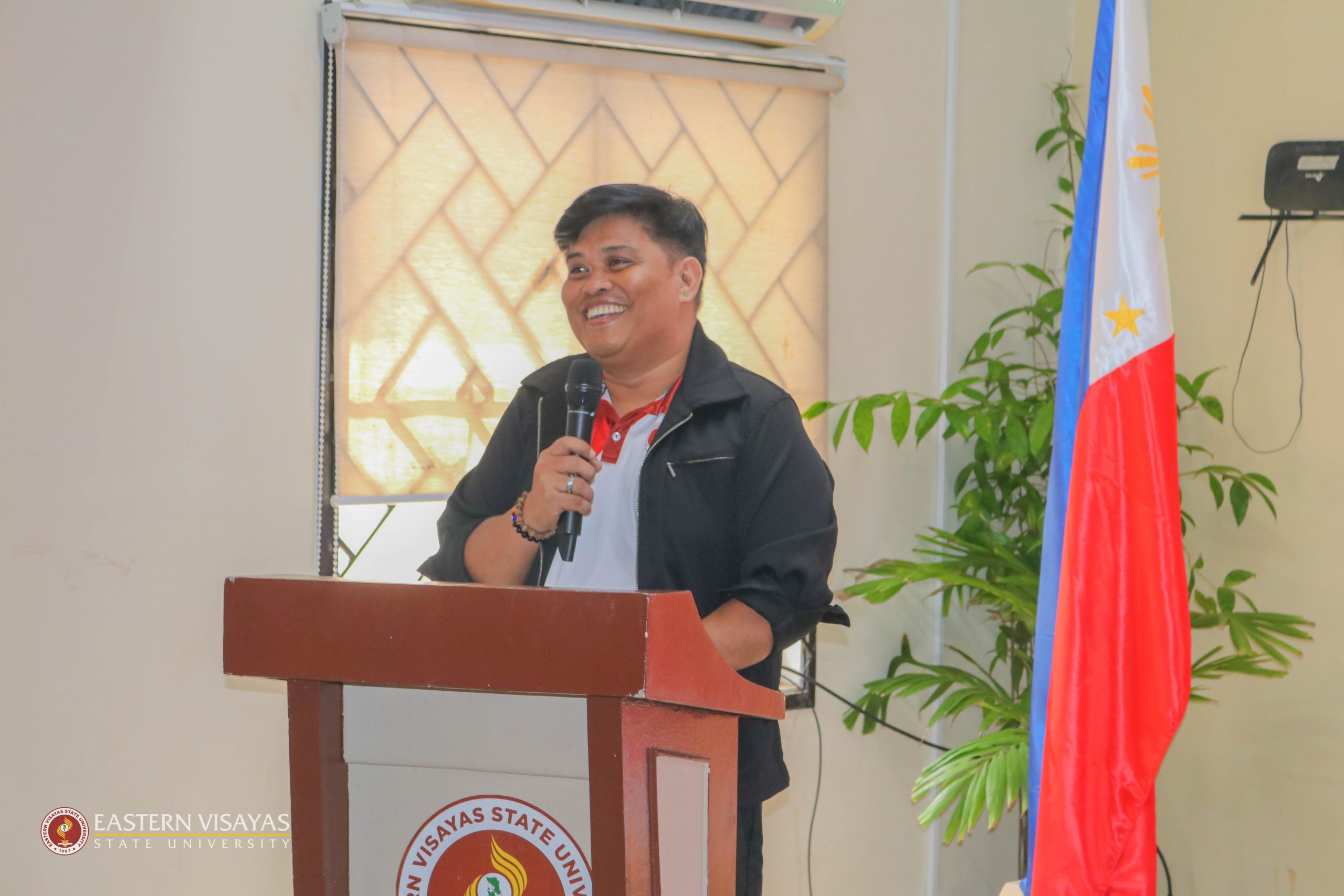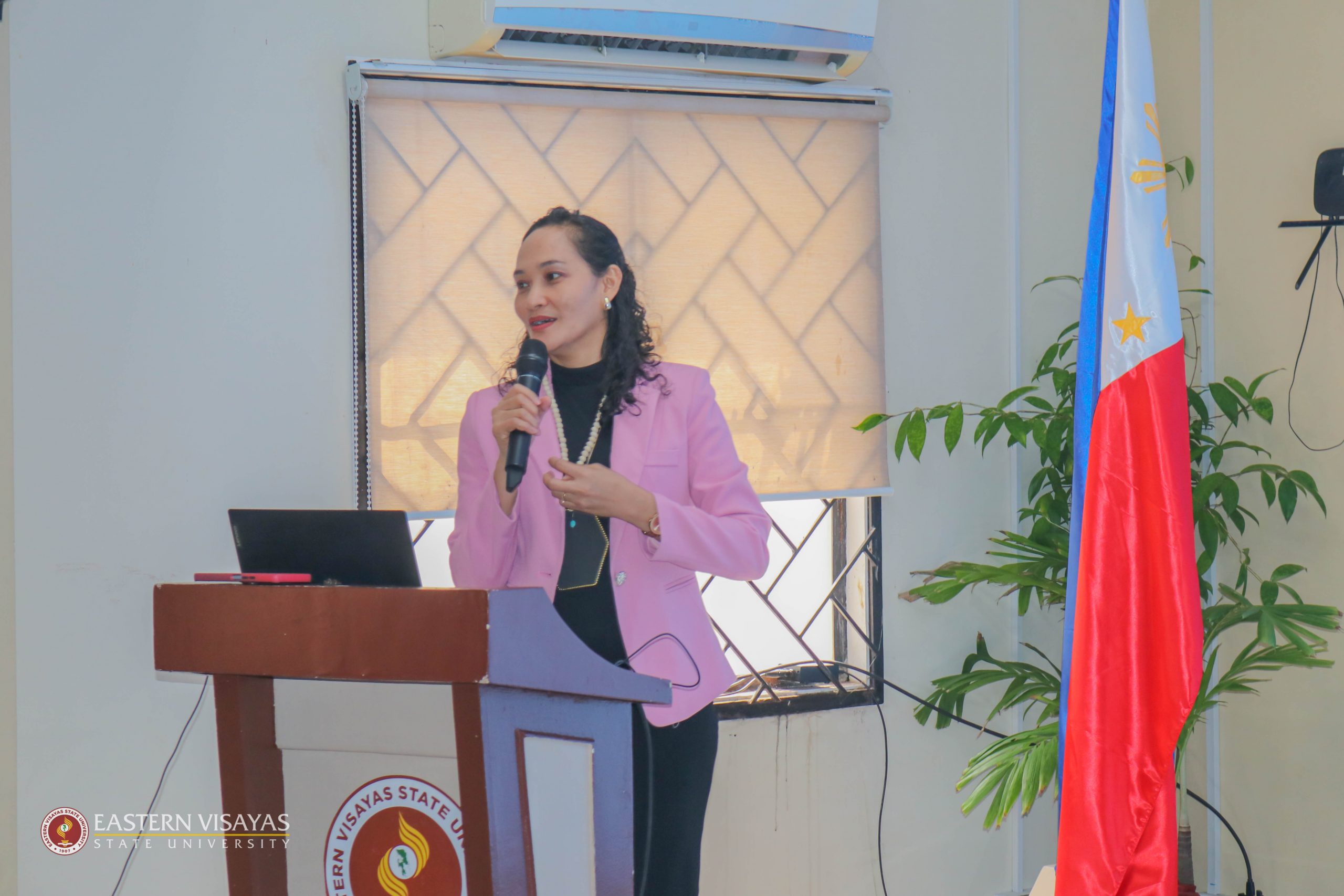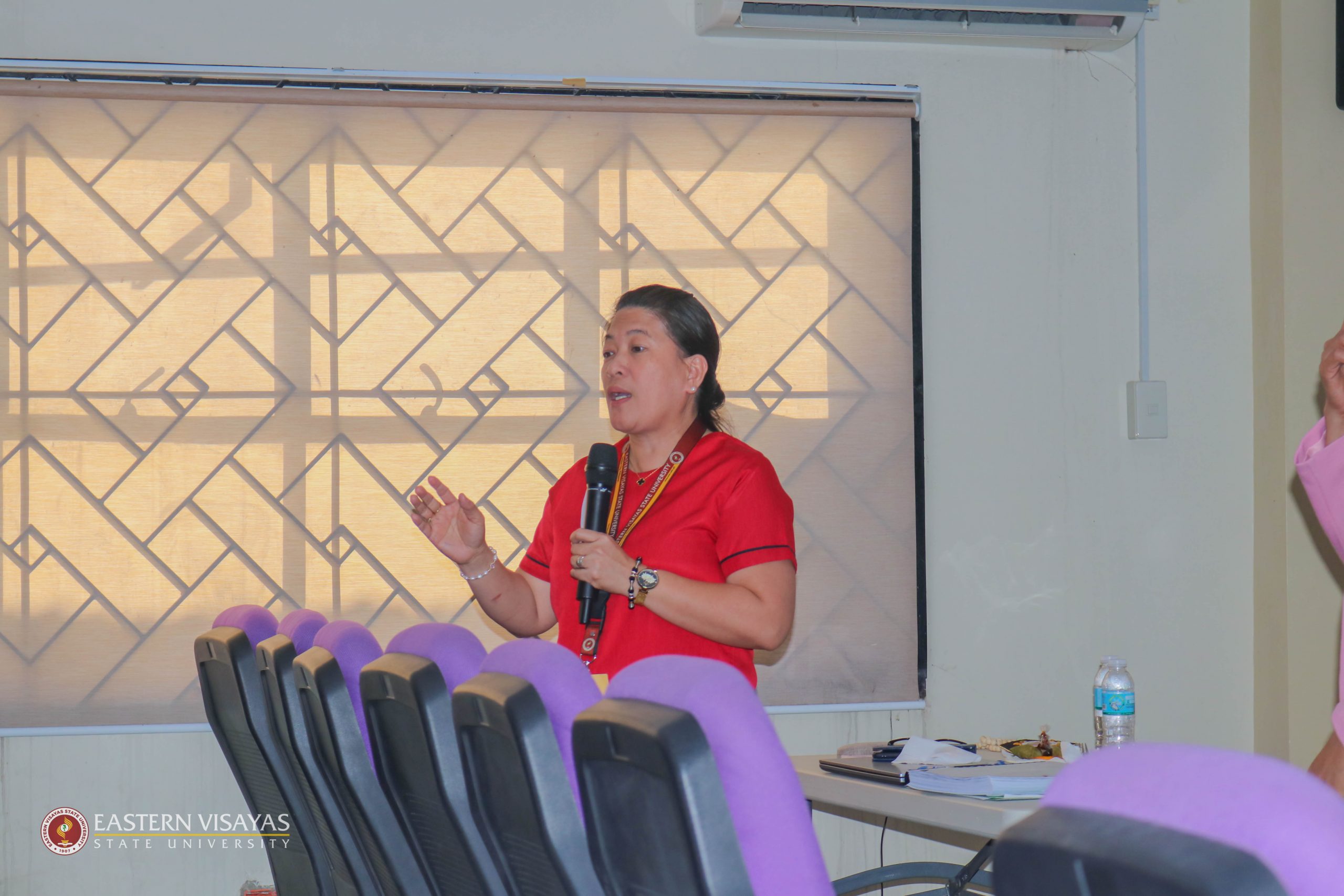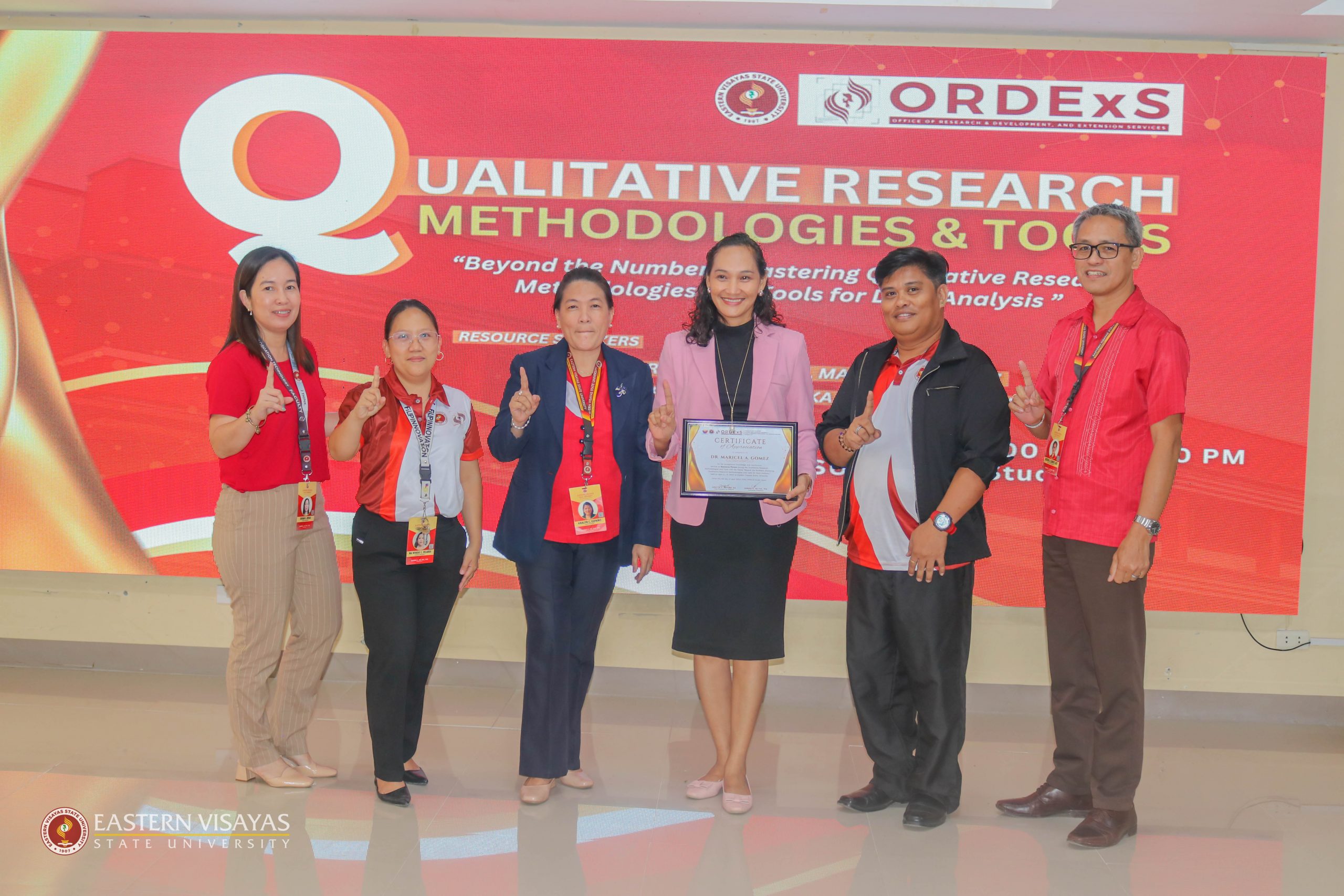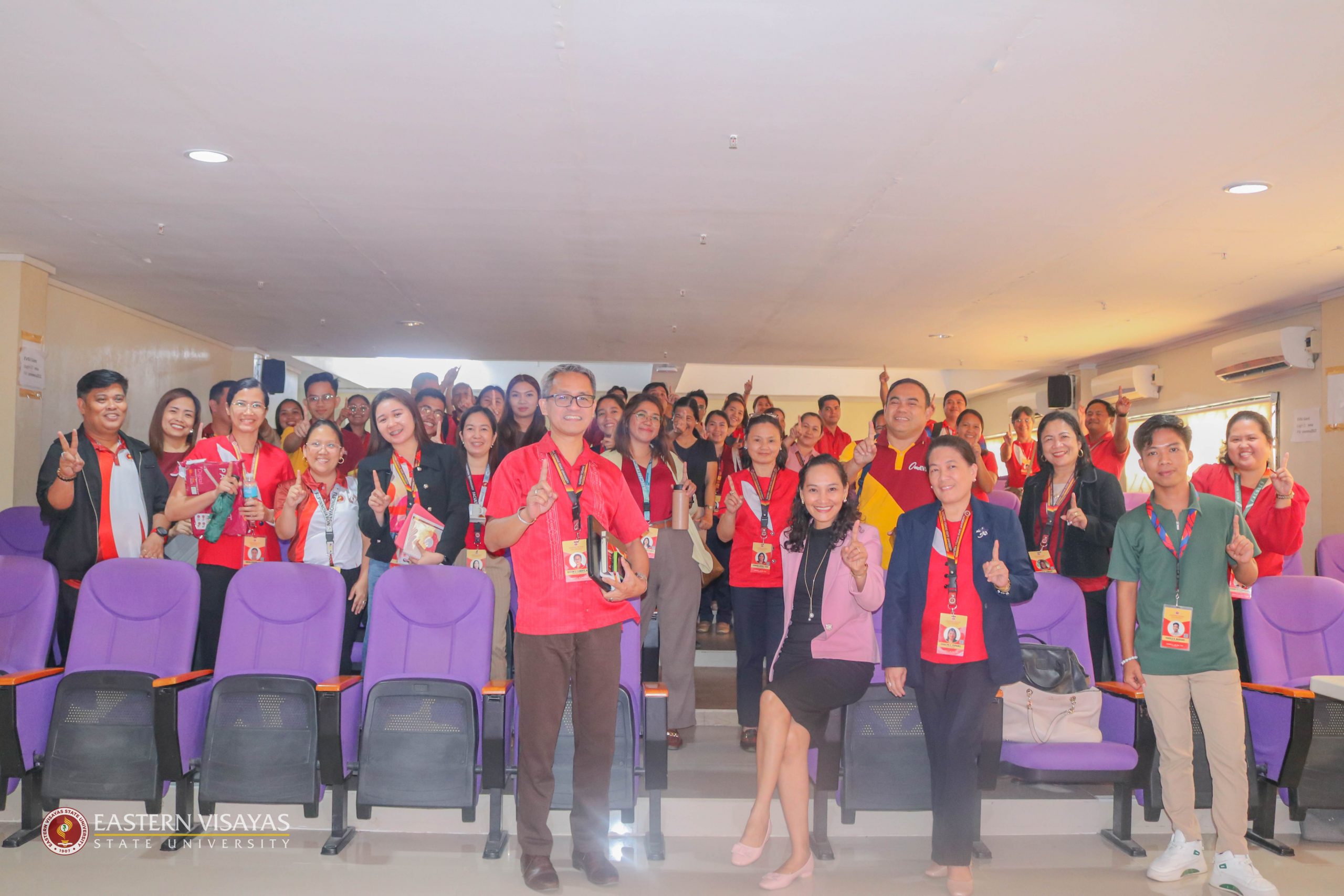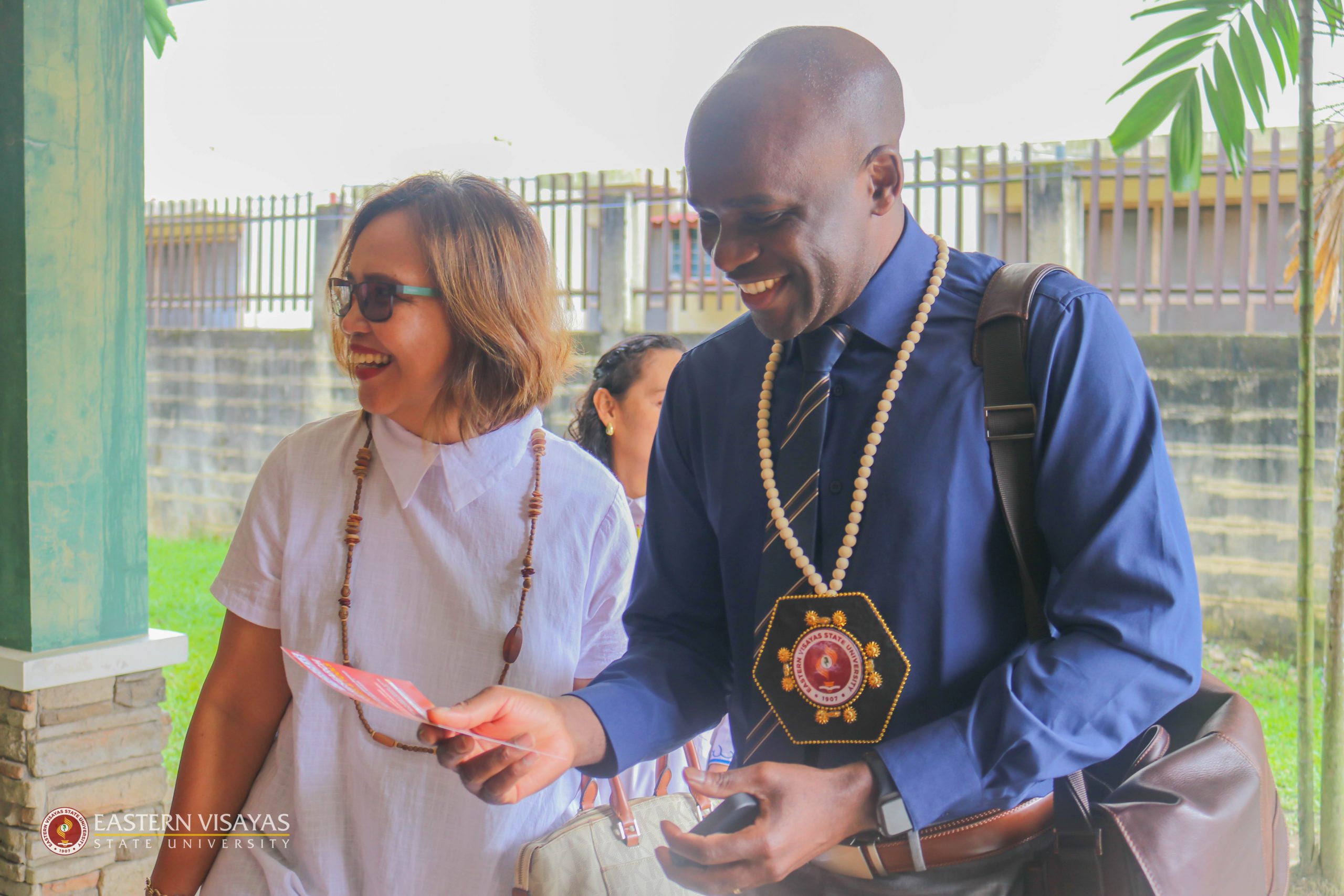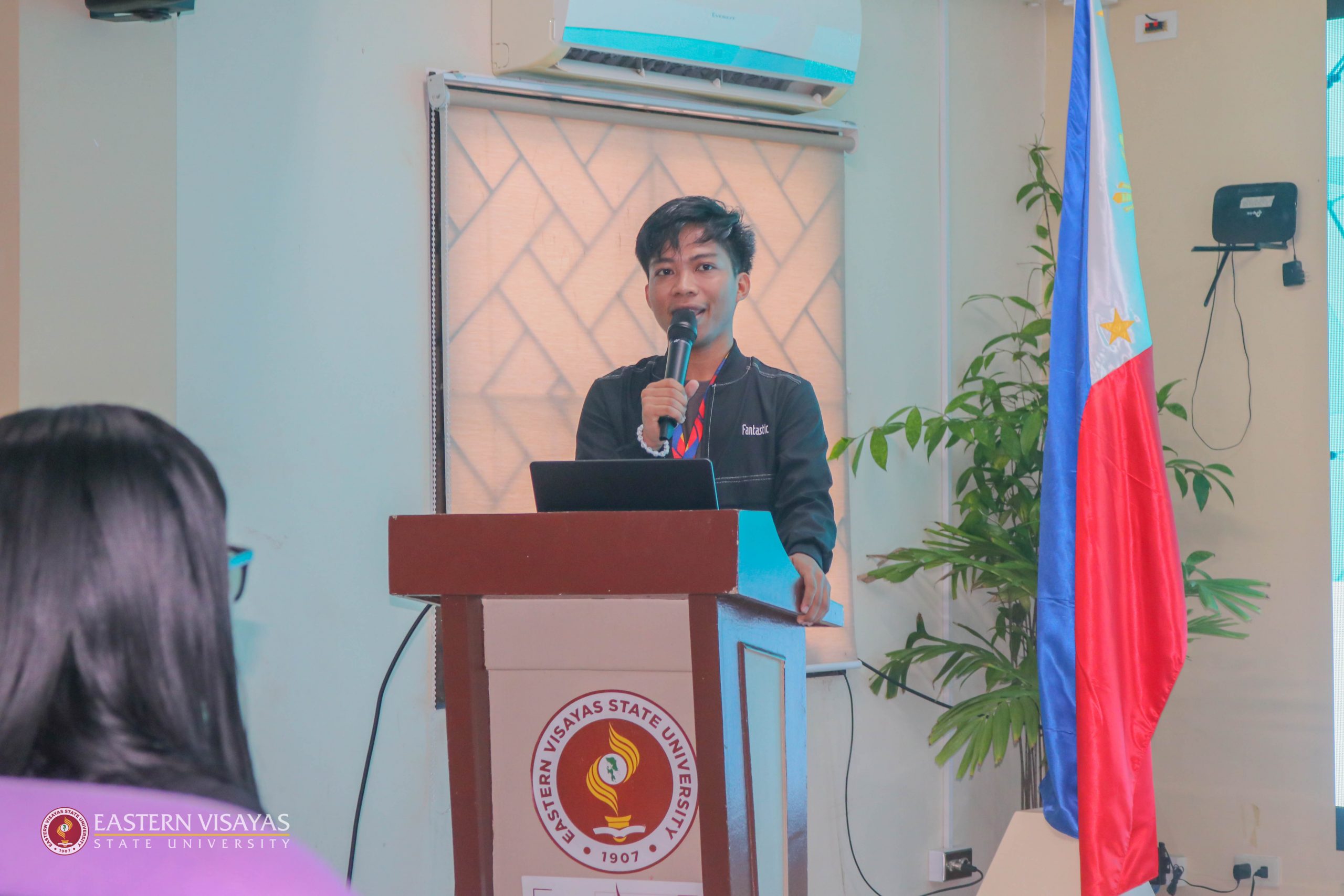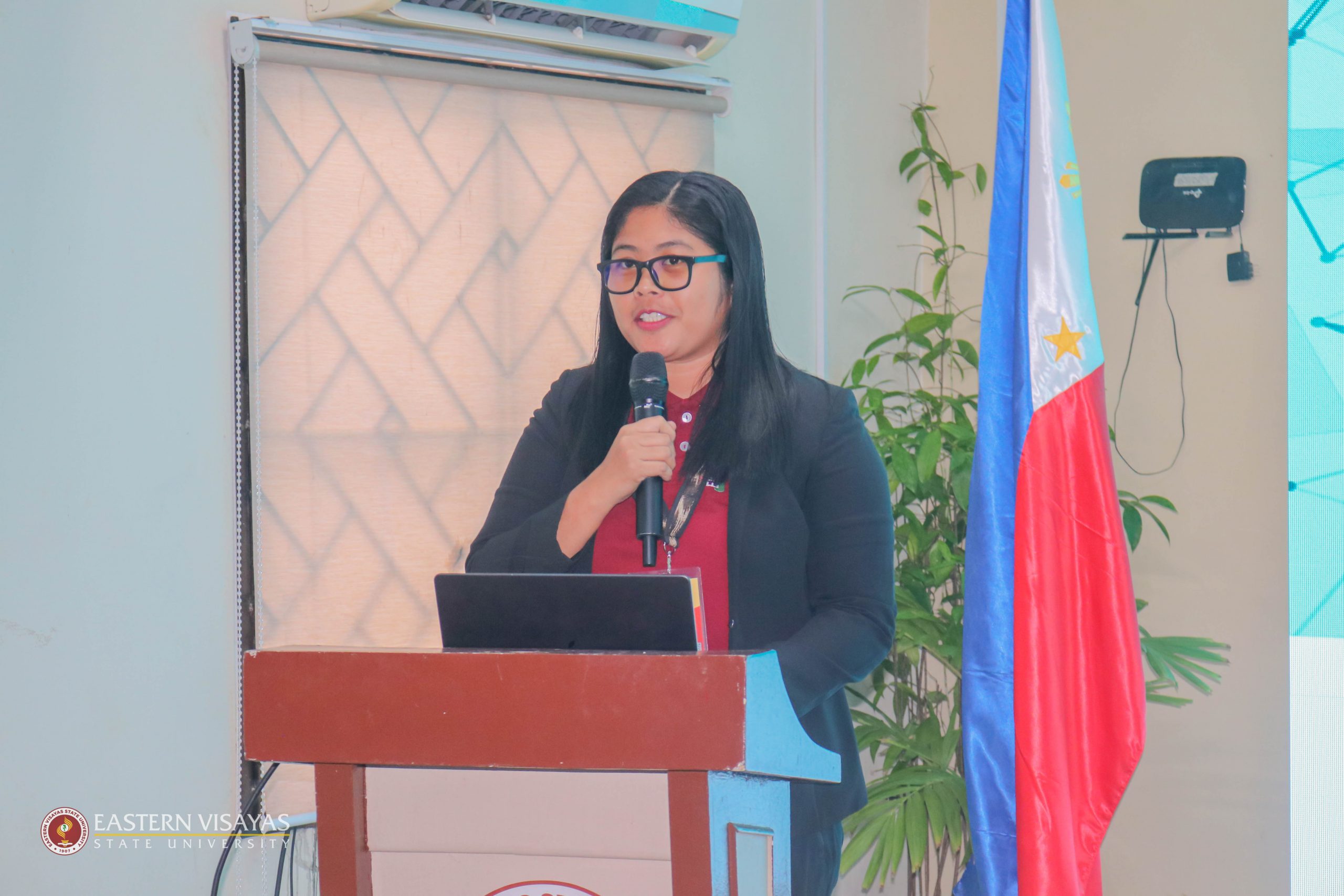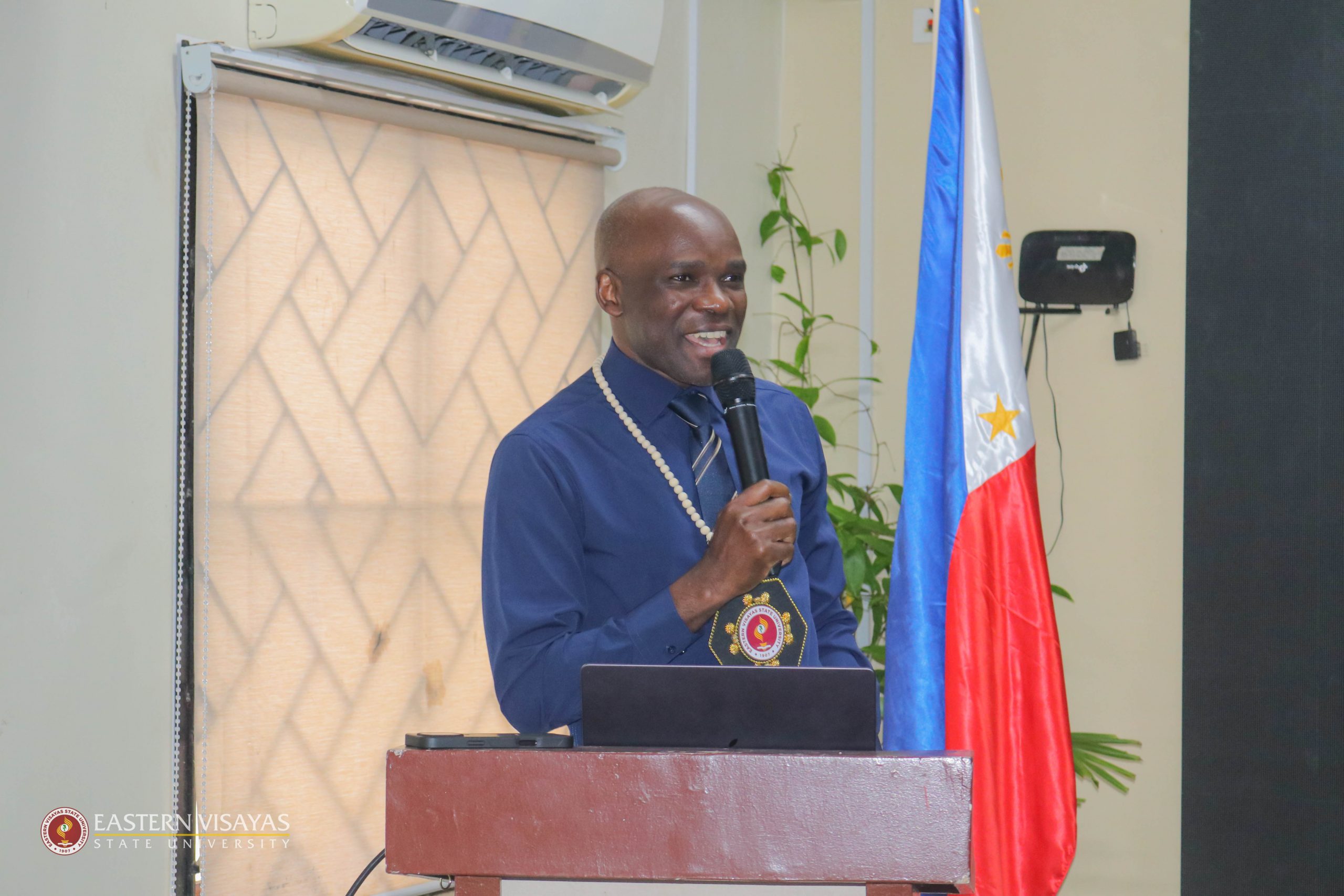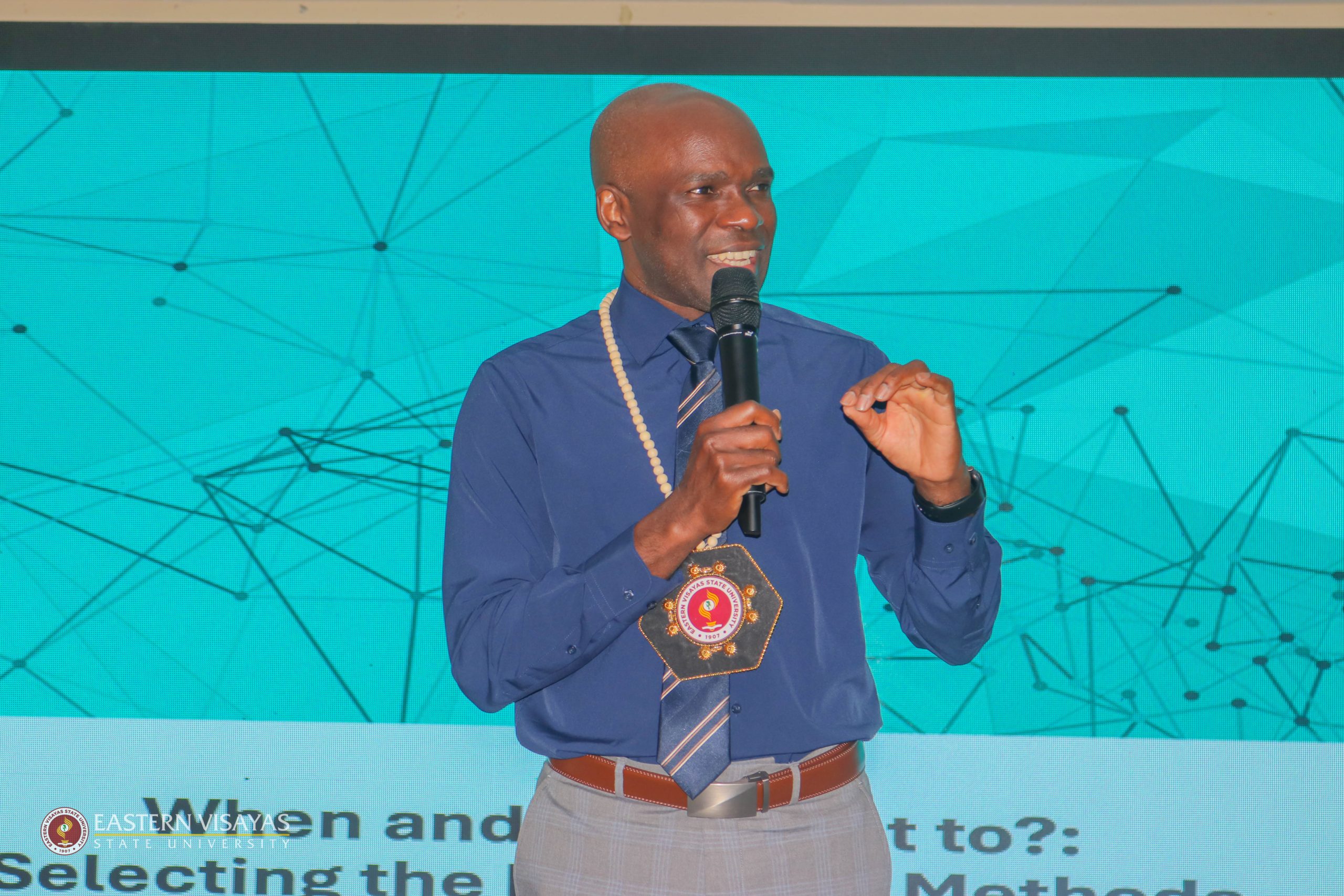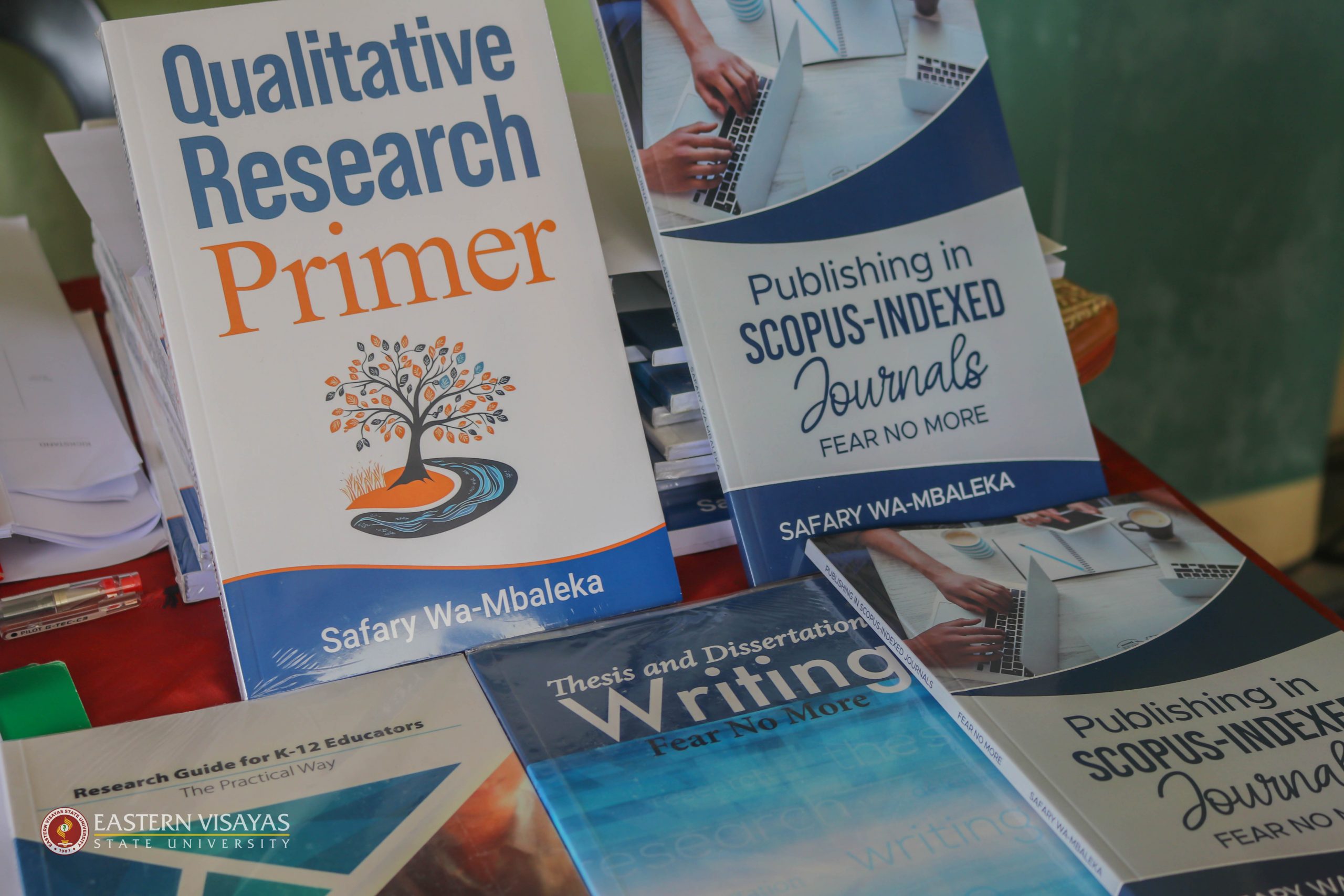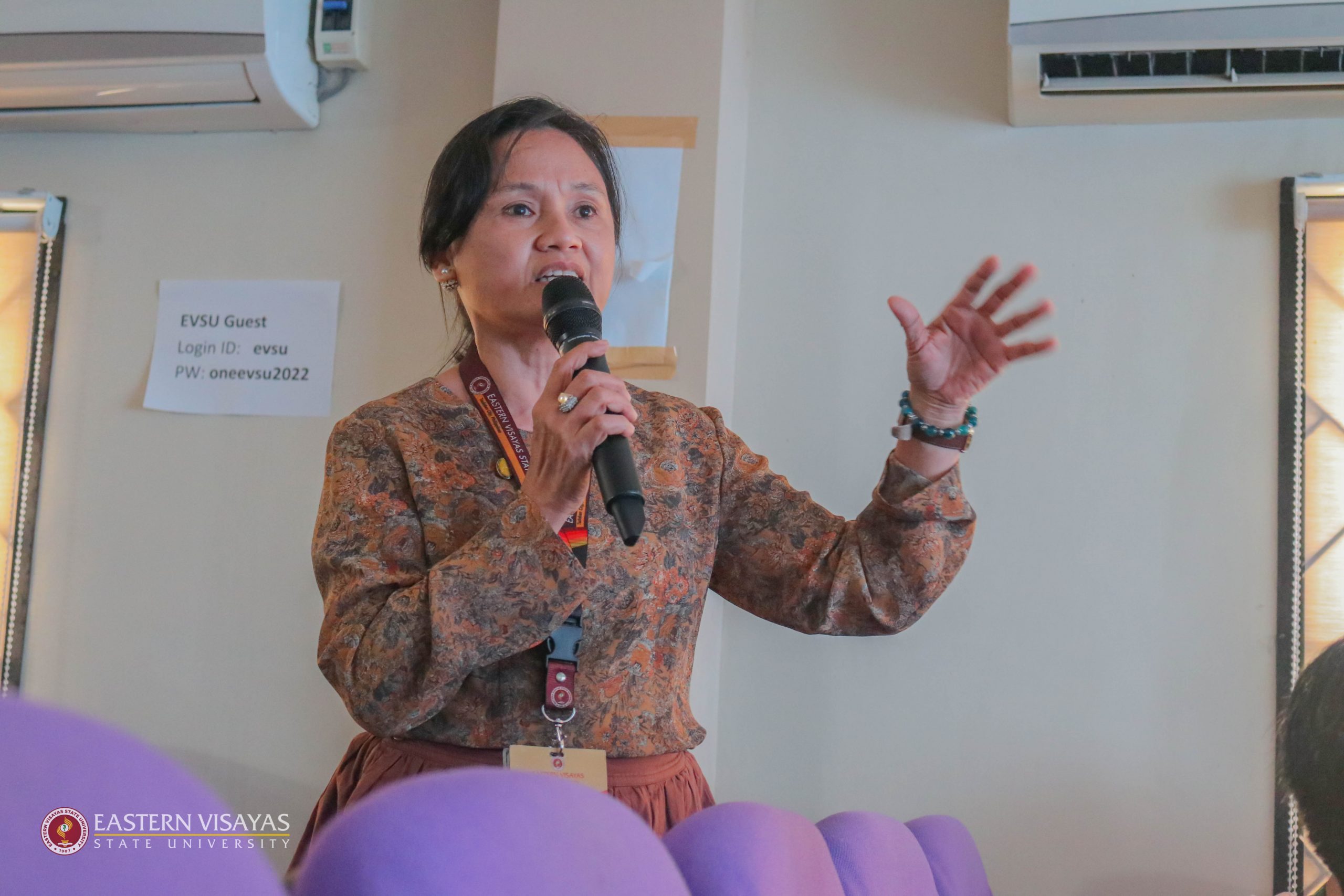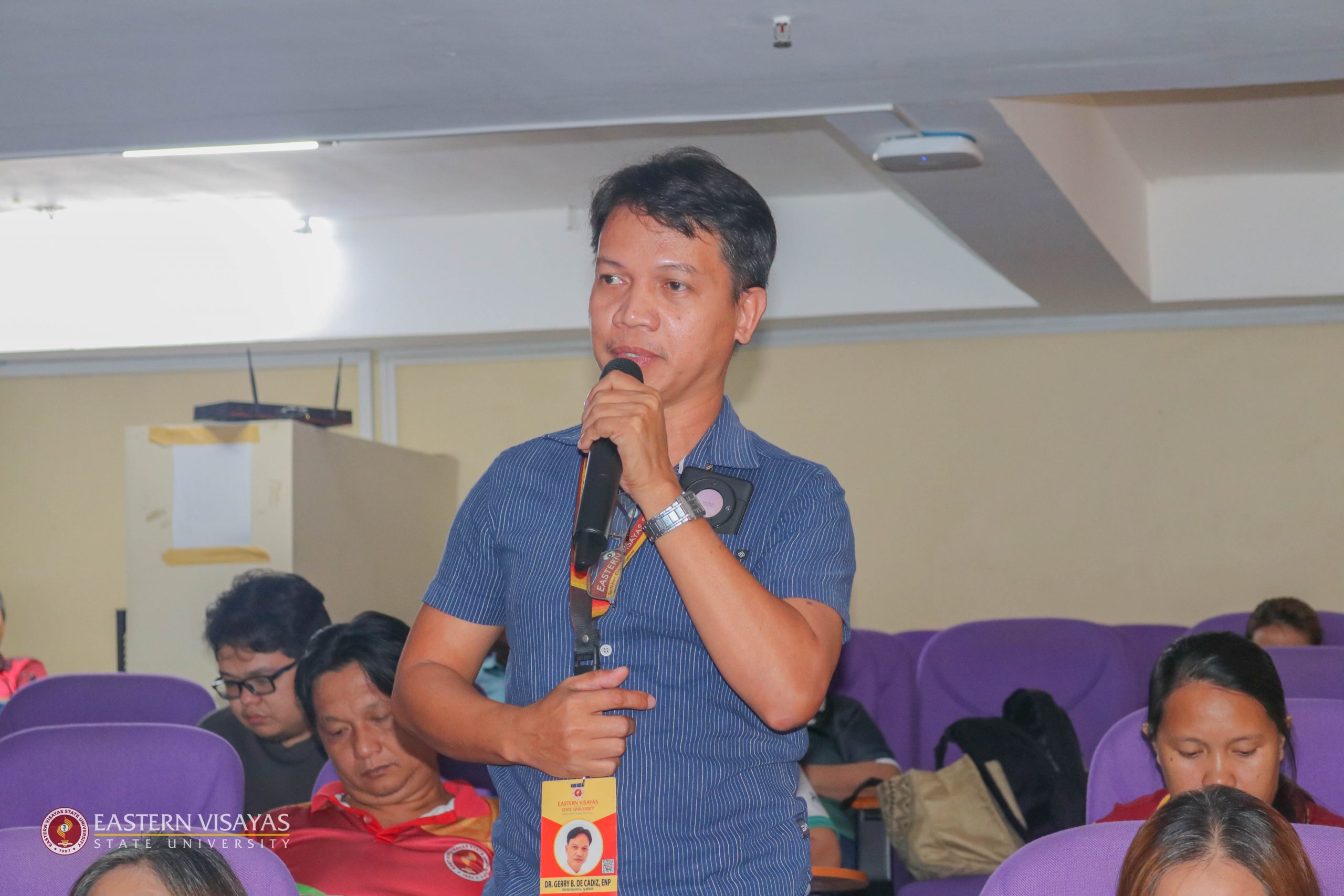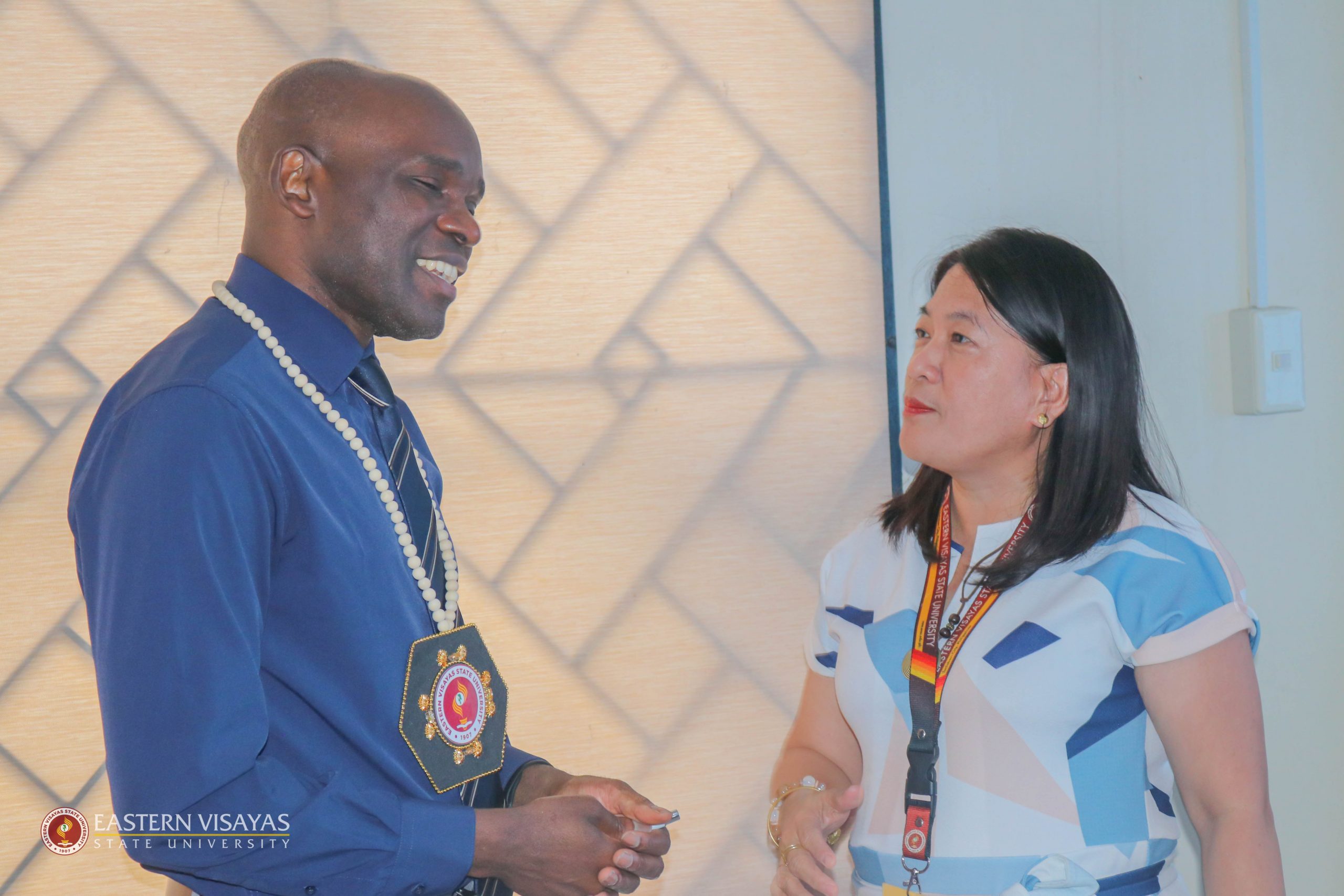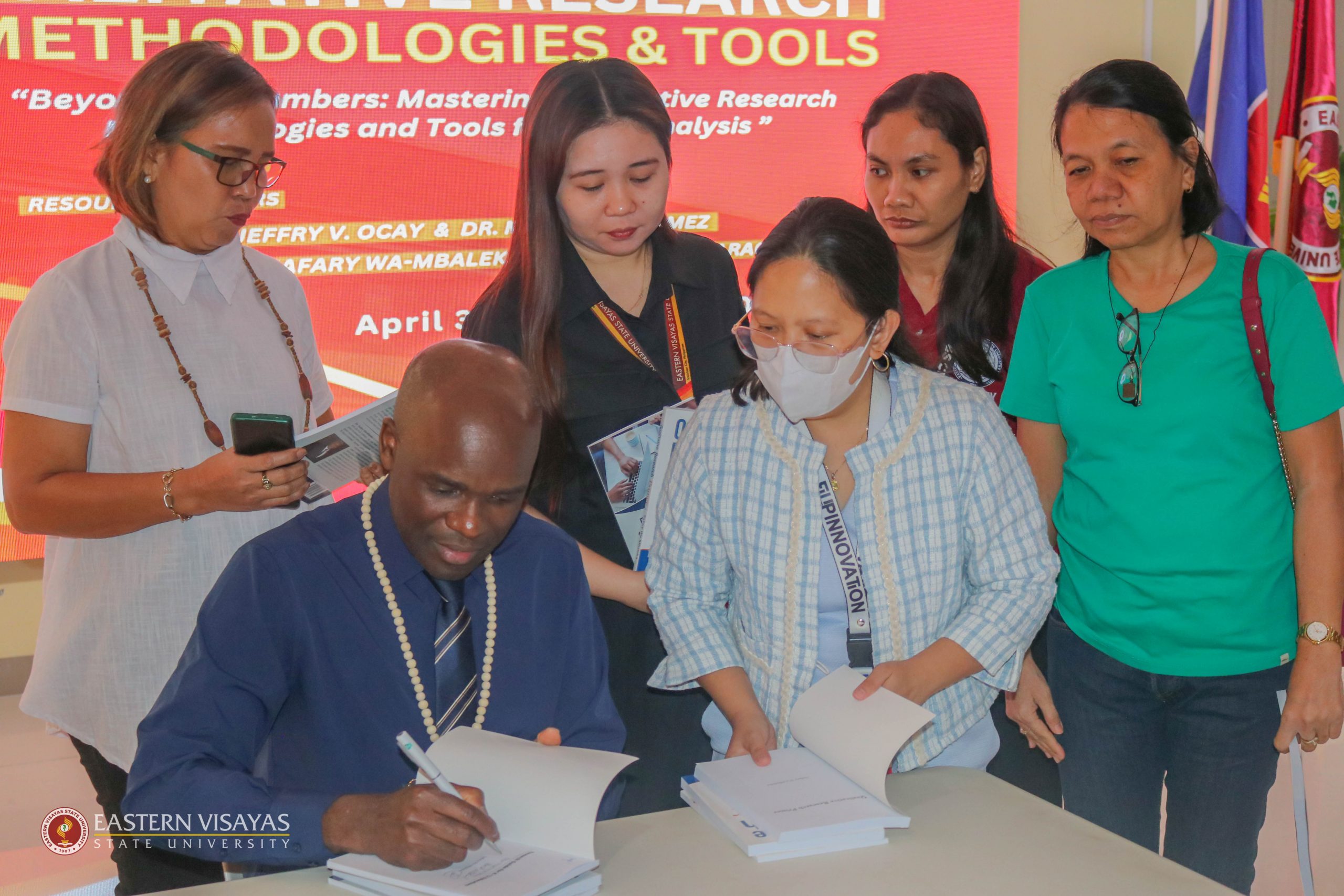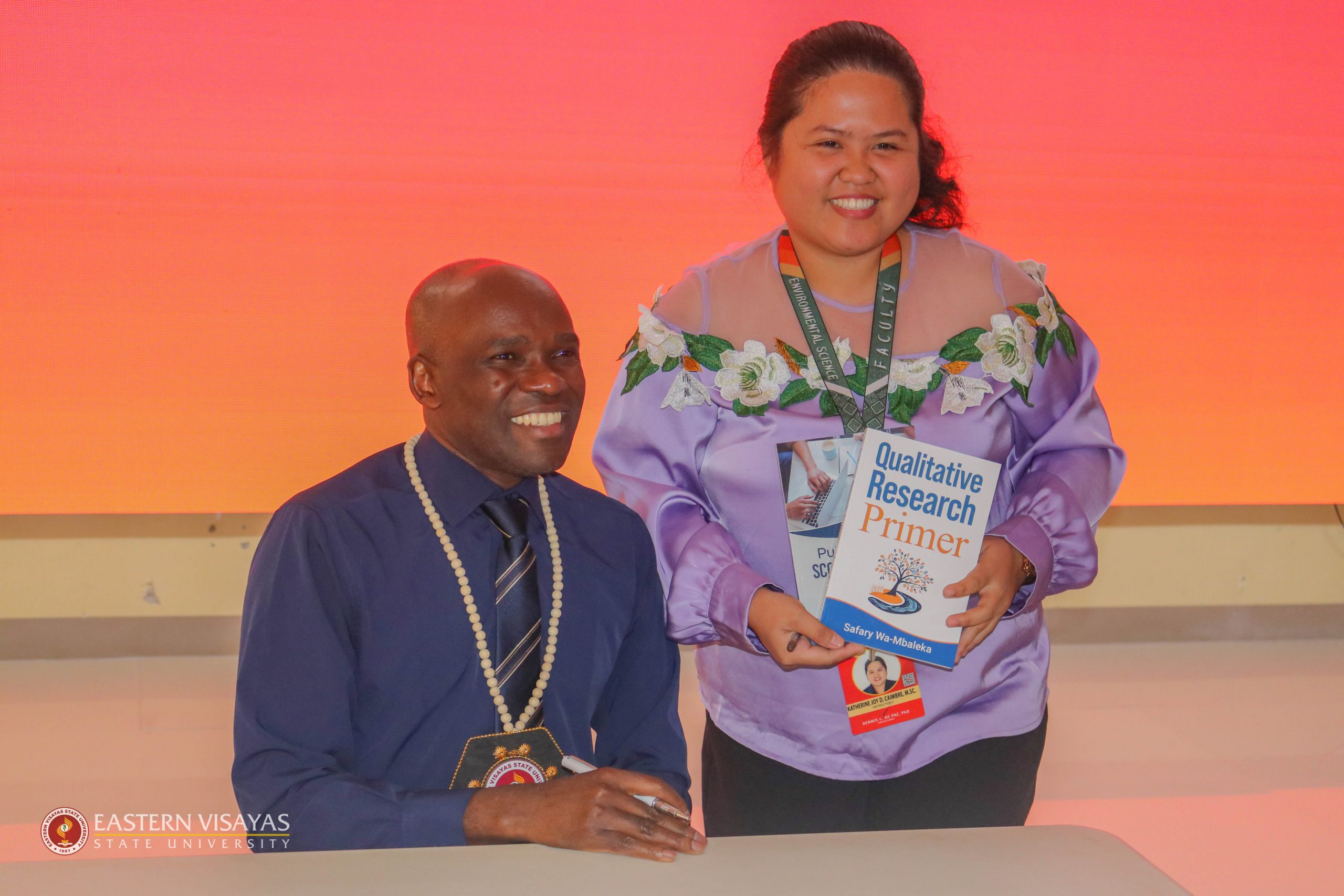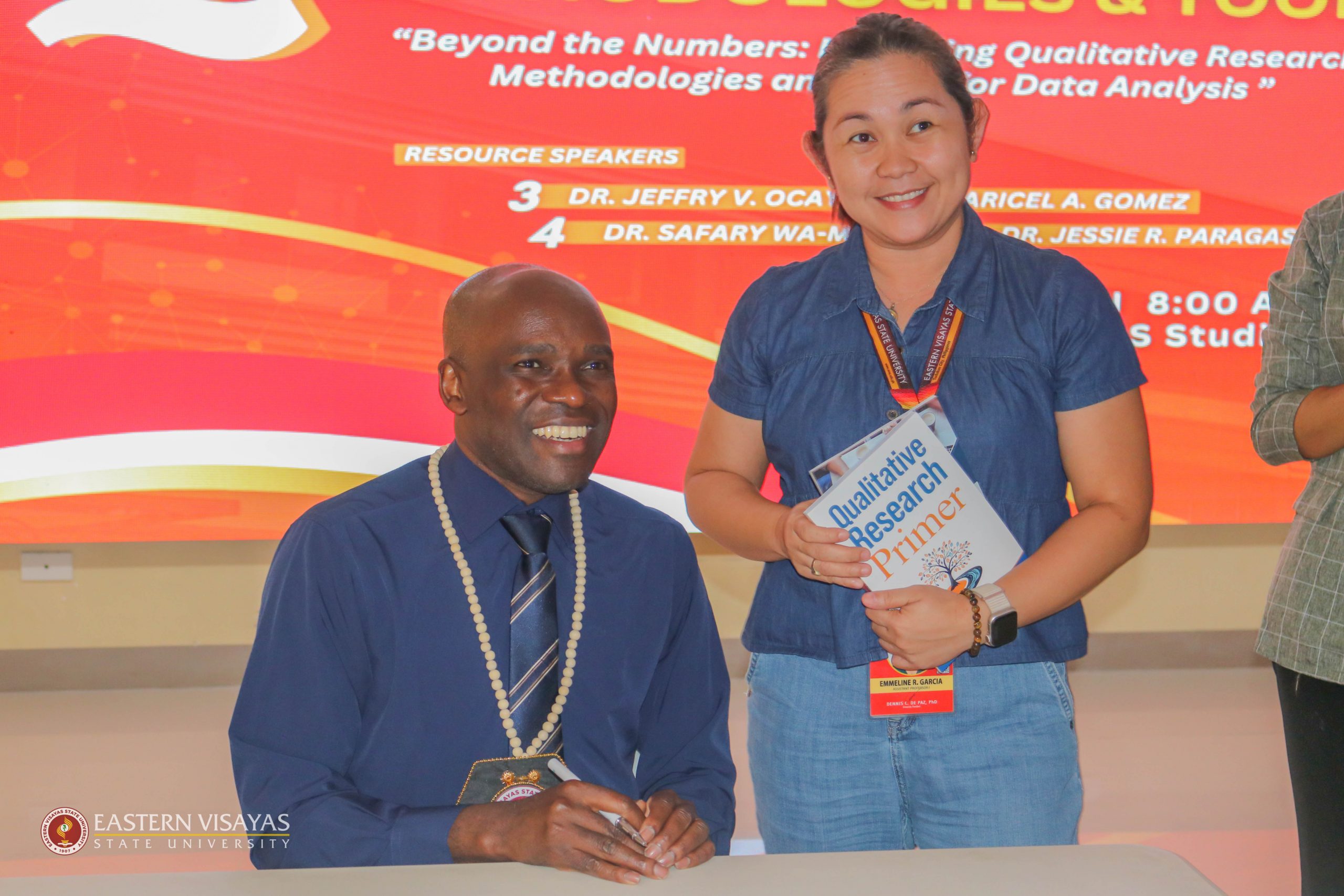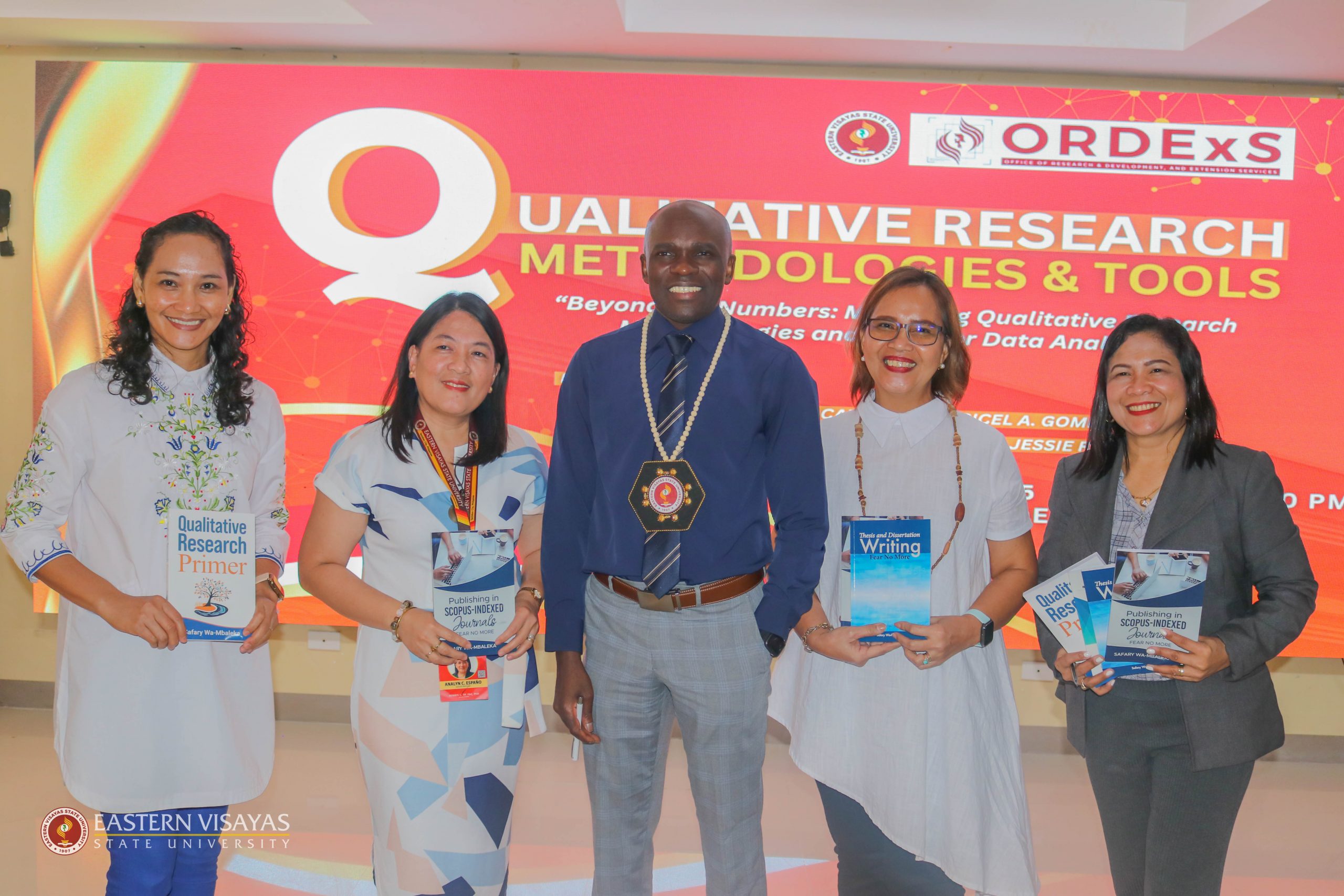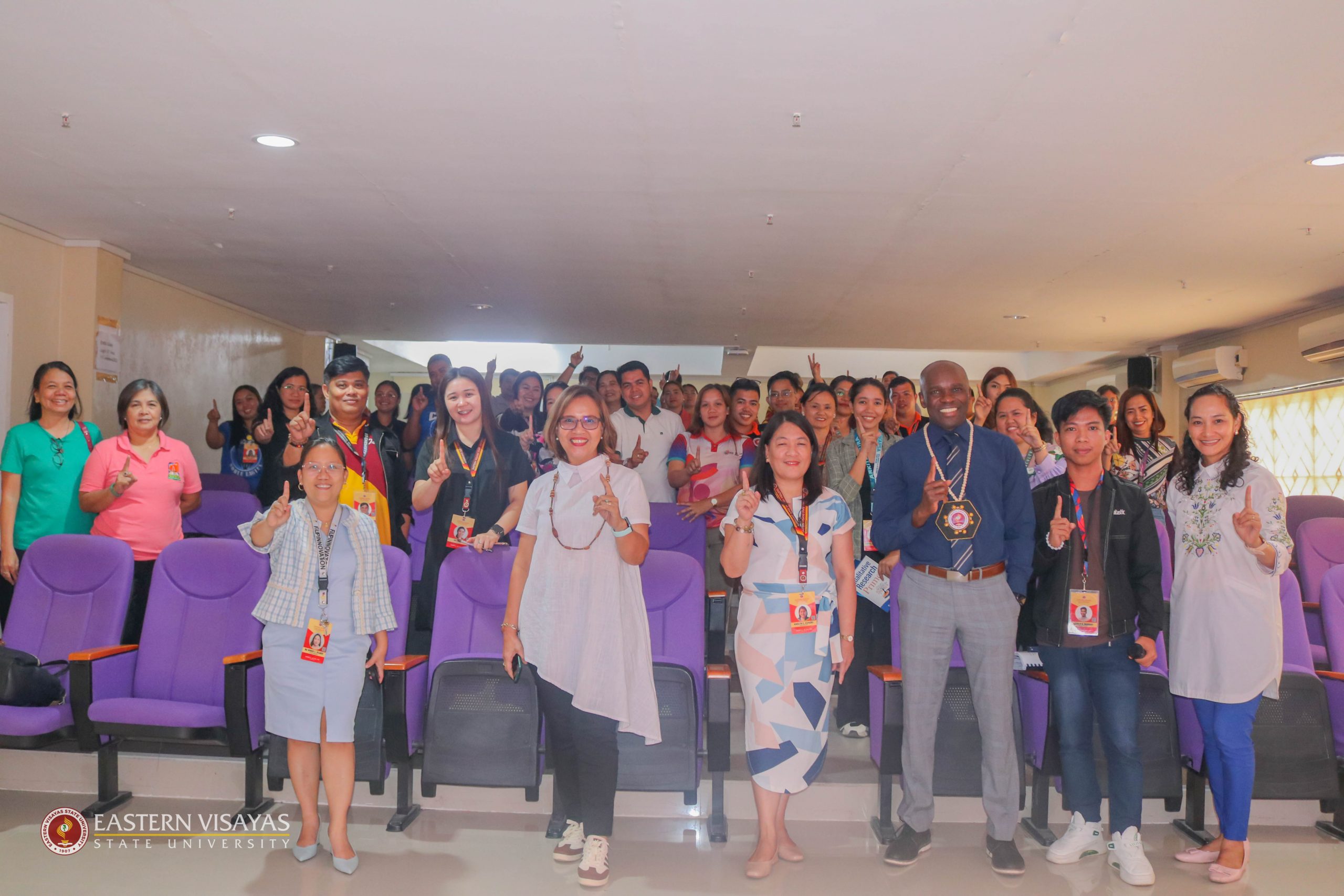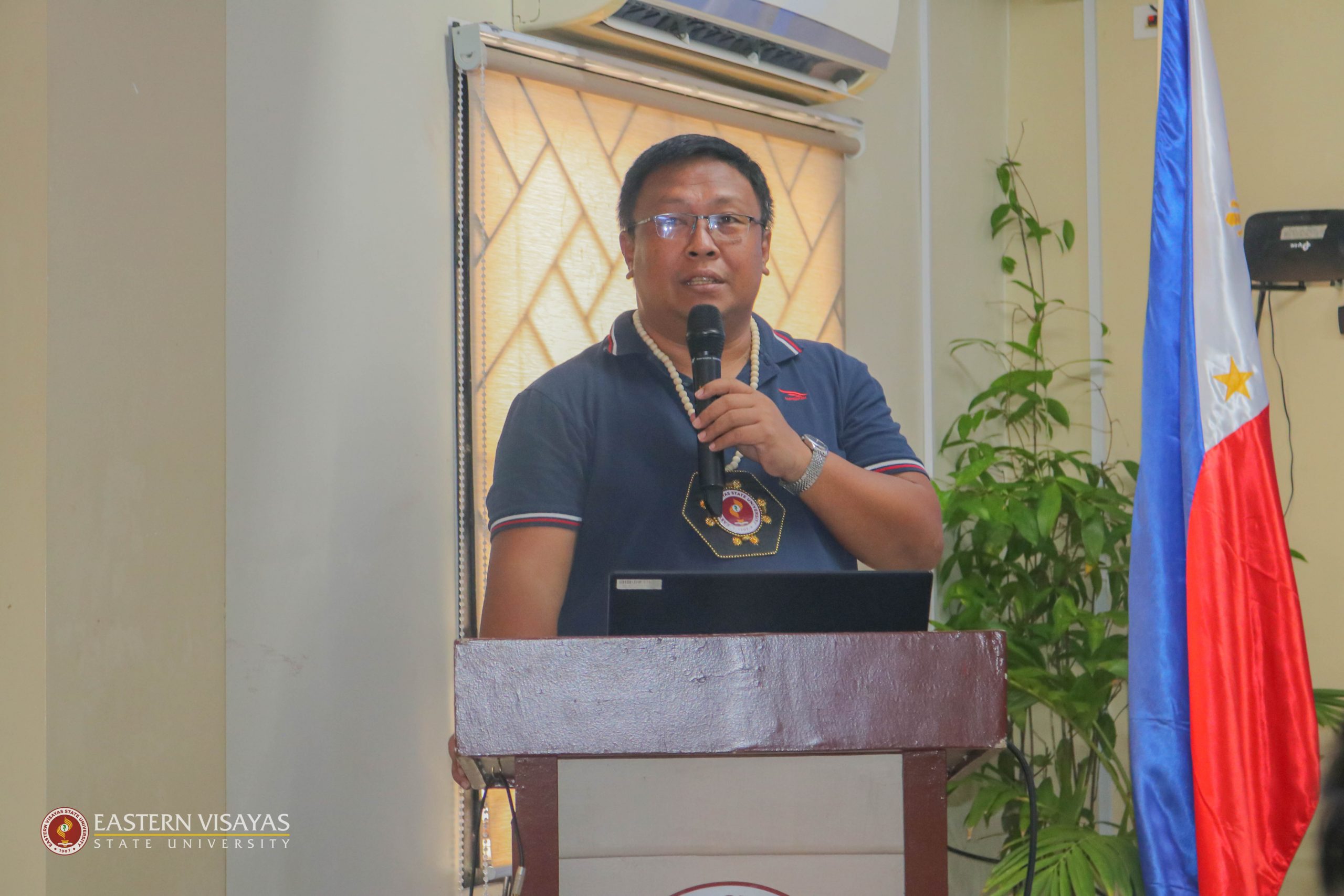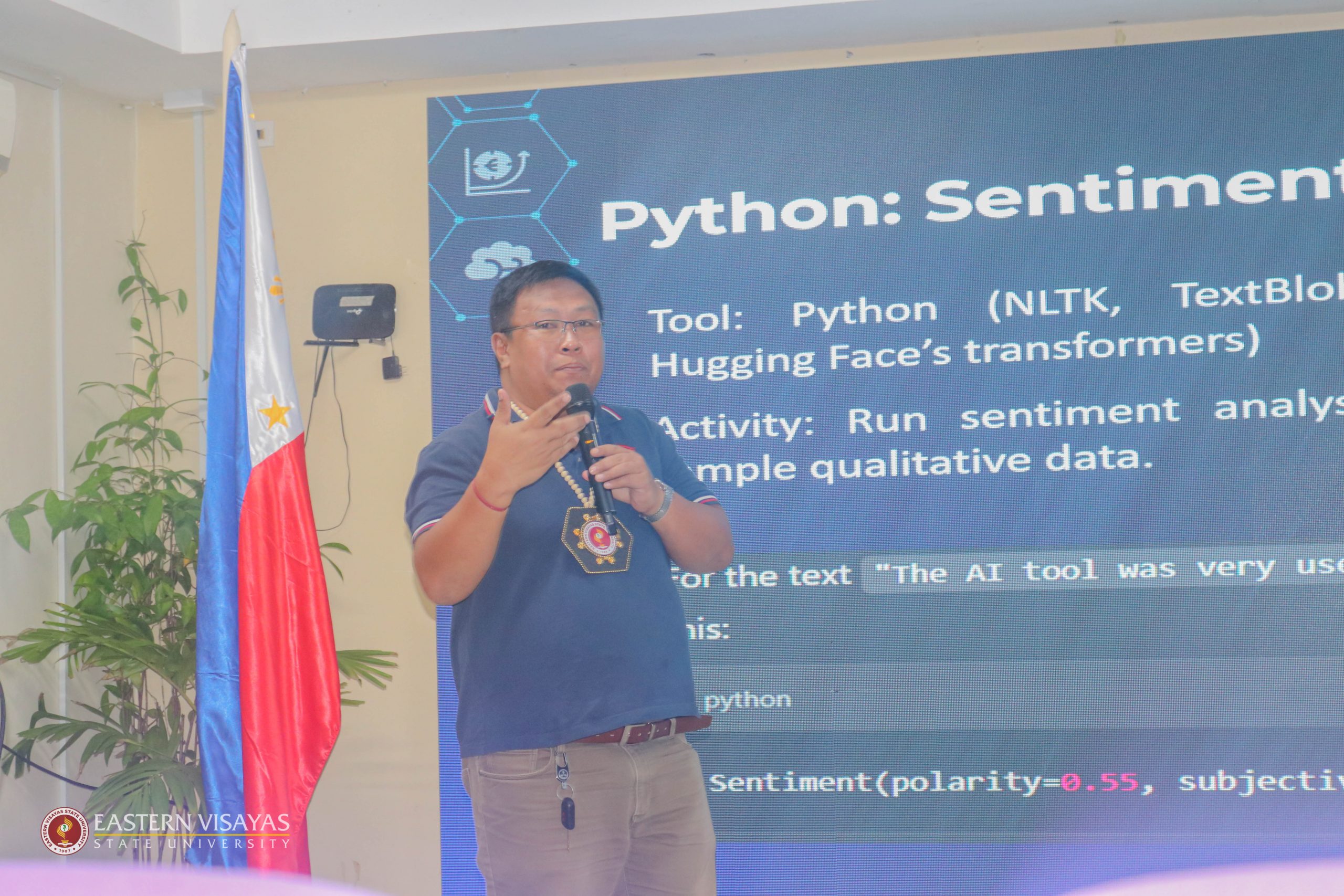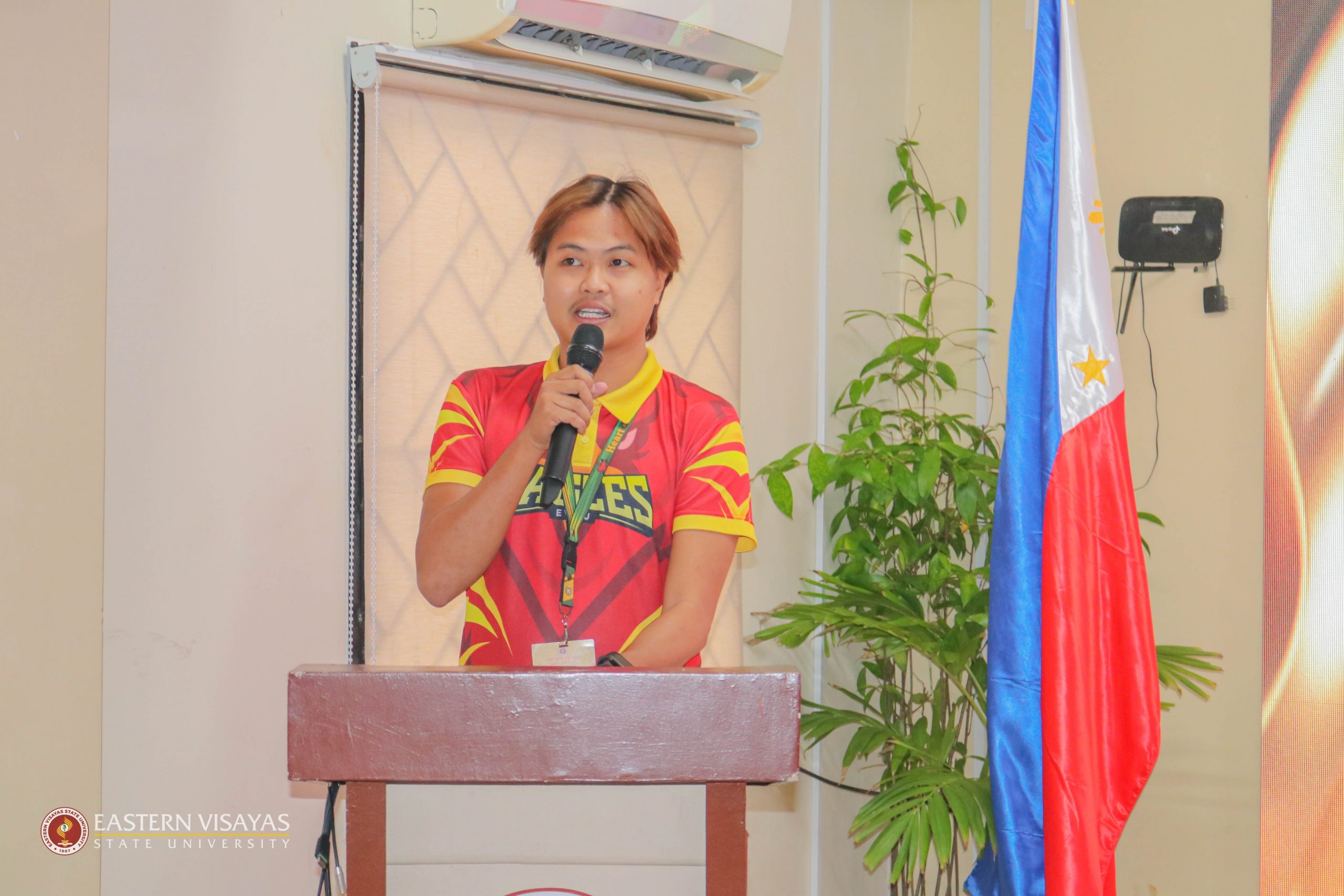In continuing the university’s goal of boosting research production, the Office of Research, Development, and Extension conducted a seminar-workshop on Qualitative Research Methodologies and Tools last April 3-4 at the ORDEXS studio room.
Anchored on the theme “Beyond the Numbers: Mastering Qualitative Research Methodologies and Tools for Consequential Data Collection and Analysis,” the event aimed to equip participants with in-depth knowledge and practical skills in qualitative research design, data gathering, and data interpretation.
Day 1 of the sessions featured talks from university professor and EVSU’s current top scientist, Dr. Jeffry V. Ocay, who discussed “Spotting Gaps and Formulating Problem Statements in Qualitative Research.” Dr. Ocay emphasized the importance of identifying unexplored areas within existing literature to develop meaningful and relevant research questions. His session guided participants through the foundational steps of qualitative inquiry, providing practical strategies for crafting strong problem statements grounded in scholarly gaps.
Following Dr. Ocay’s session, Dr. Jessie Paragas delivered his presentation on “AI Tools and Apps for Qualitative Research,” introducing participants to a range of online resources and Artificial Intelligence (AI) tools they can utilize to enhance research productivity.
On Day 2, EVSU welcomed Dr. Safary Wa-Mbaleka for his session titled “When and When Not: Selecting the Right QLR Method,” which explored the nuances of qualitative research methodologies. Dr. Wa-Mbaleka’s recently published books were also introduced as valuable references for QLR practitioners. Opportunities for collaboration and engagement with QLR Connect were highlighted, with discussions opening doors to future research partnerships and publications.
To conclude the training, Dr. Maricel A. Gomez led her session on “Qualitative Data Coding 101,” where she walked participants through the process of organizing and interpreting qualitative data. Her discussion offered hands-on insights into coding techniques, providing essential tools for analyzing narratives, themes, and patterns within qualitative datasets.




